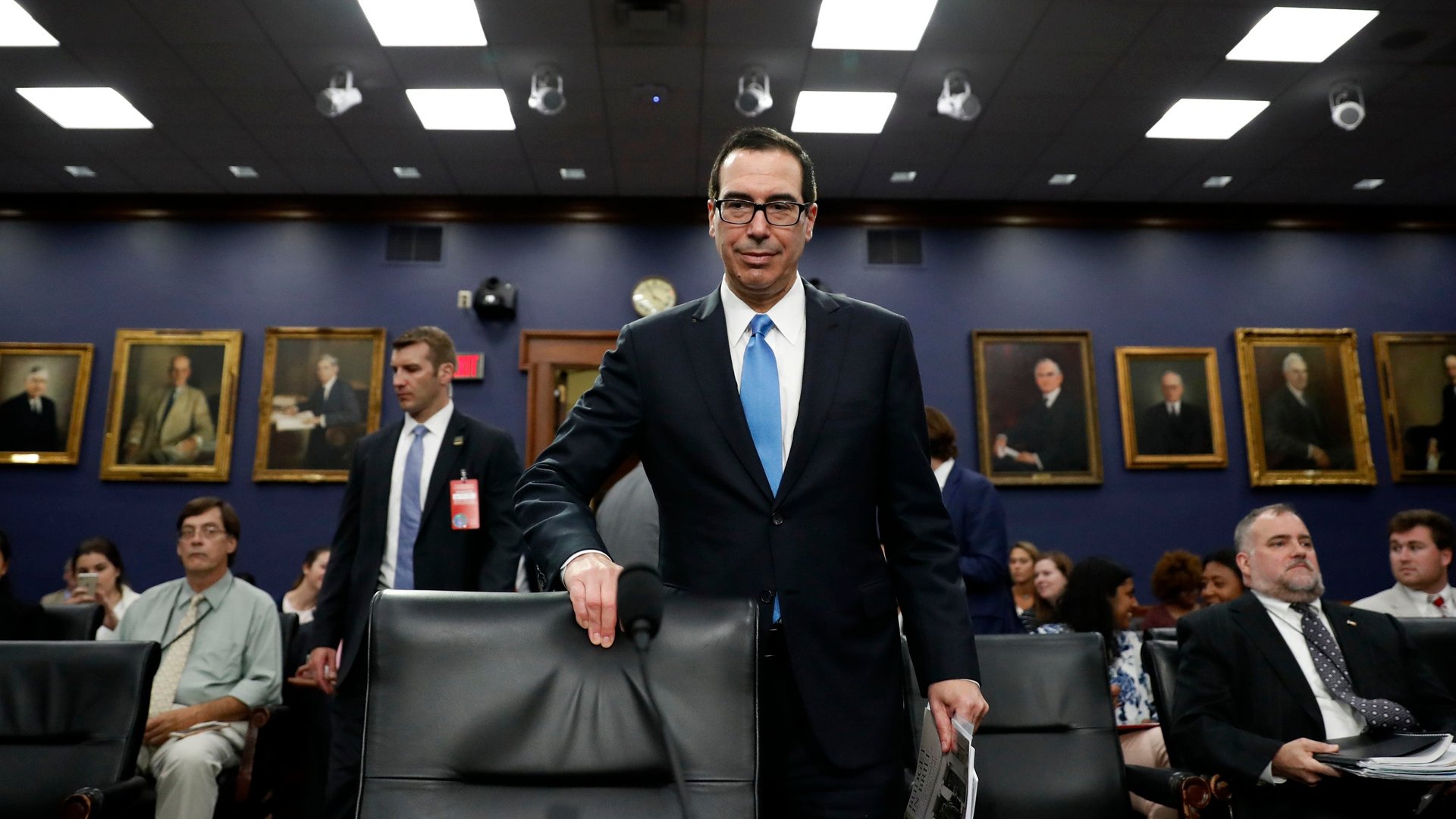The US just can’t stop putting tax policy in the hands of tax-avoidance experts
David Kautter, president Donald Trump’s pick to run tax policy for the US Treasury, faced some awkward questions on July 18. Senators at his confirmation hearing wanted to know: Was he involved in a tax shelter scandal at his current employer, the global accounting services firm Ernst & Young?


David Kautter, president Donald Trump’s pick to run tax policy for the US Treasury, faced some awkward questions on July 18. Senators at his confirmation hearing wanted to know: Was he involved in a tax shelter scandal at his current employer, the global accounting services firm Ernst & Young?
Of course not, he and his defenders say. That may be true—but it obscures the revolving door that has put much of tax policy in the hands of people emerging from corporate cultures that emphasize avoiding tax payments at all costs.
The scandal concerns a team of employees at Ernst & Young who developed and sold tax products that allowed wealthy individuals to avoid $2 billion in taxes around the turn of the century. The story ended with four people in jail and Ernst & Young paying the Internal Revenue Service $123 million to avoid prosecution.
The team began its work in 1998, and in 2000, Kautter became the head of US national tax services at the company. While he was included on e-mail chains related to the illegal tax shelters, he told Congress that “the firm set up a separate reporting structure with respect to tax shelters, which did not involve the director of national tax. When I took over, that was the system that was in place and continued until the tax shelter group was dissolved.”
He went on to say that, following his participation in a Senate investigation into the team’s actions, the group “greatly disappointed me, and I felt members of the group abused the trust that the firm had placed in them. Looking back, I should have been more active.”
Probably! Imagine you are responsible for “strategic direction, day-to-day operations, and quality of technical advice rendered by the firmwide Tax practices,” as Kautter’s LinkedIn profile describes his role at Ernst & Young. Then imagine you are told that there is a small group called VIPER marketing products called COBRA, SOAP and PICANTE to clients making more than $20 million annually—which seem like pretty important clients!—but don’t worry about them, they don’t report to you. Later, the name of the group is changed from VIPER to “Strategic Individual Solutions Group” because it is “less sinister sounding.”
That Kautter looked the other way probably reflected the culture at Ernst & Young, which the company committed to changing in its settlement with the government. But it might also, as senator Ron Wyden noted at Kautter’s hearing, have had to do with the fact that “as a partner at Ernst & Young, you benefited financially as the money poured in.”
This is hardly to single out Ernst & Young as unique among its competitors in global accountancy. KPMG and PriceWaterhouseCoopers were also investigated for their roles in tax shelters in the early 2000s; in 2014, Quartz attended a PWC presentation that promised interested companies the ability to pay zero tax by structuring their investments through Cyprus.
Kautter left Ernst & Young for an academic role in 2010, before returning to lead the Washington office of a different tax consultancy, RSM. He is likely toward the end of his four-decade career in tax services. But he represents a common trend of putting top accountants in charge of key aspects of US tax policy, and then letting them return to the work of telling people how to avoid taxes. It is a similar challenge to banking regulation: Finding expertise without conflicts of interest.
Consider that Kautter will be the fourth former Ernst & Young employee to run the office since 2000, and that the other three—Mark Weinburger and Eric Solomon, appointed by president George W. Bush, and Michael Mundaca, appointed by Barack Obama—actually returned to the firm after their time in government to continue leading its tax practices. Obama managed to find one appointee without Ernst & Young connections—a senior IRS official with a PhD in economics, Mark Mazur.